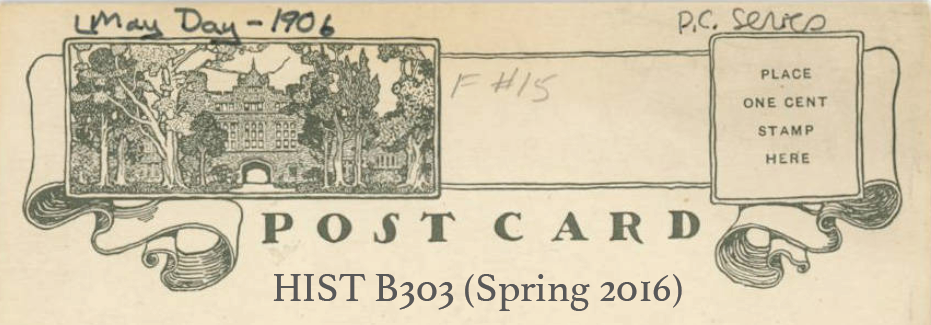I first encountered Trouillot last semester in a course on the colonial experience in Latin America. The ideas he advances, while seemingly obvious in hindsight, were in many cases not concepts I had ever thought to consider or factor into my narratives before. I kept the book throughout the semester, and was quite pleased to have an excuse to buy it this time around.
One of his most interesting ideas as relates to Bryn Mawr’s history specifically is the notion that he advances in Chapter 3: that there is a kind of history that even after an event has happened remains incompatible with the current mode of thinking, and therefore is neglected or written in a falsified narrative because quite literally a historian cannot comprehend what has happened. Trouillot’s primary example is the Haitian Revolution, which defied entrenched Western notions of race and social order (82), but I think it could be applied to other examples he advances throughout the book: for example, the denials made by those who do not believe in the Holocaust because it is literally inconceivable to them that such a thing could have happened, and furthermore, because somehow those events do not matter (13).
Turning, then, to Bryn Mawr’s history, it makes one wonder whether some of the events that our historical narrative has obscured were denied because we did not wish to discuss them, or whether it was because we could not even conceive that they had happened. I think it’s probably a bit of both. On the one hand, Bryn Mawr’s exclusion of African Americans and general suppression of diversity is a source of great shame for this institution, which could make it something we do not want to discuss. On the other, I think that among many members of the student body, there is a sense that such a thing could simply not have happened here, in this institution that so proudly declares itself on the front line of women’s education. Bryn Mawr’s narrative as pioneering institution does not allow for a vision of a school which systematically denied many women the opportunities they deserved. Nor is it compatible with other aspects of the Bryn Mawr we know today: an institution that denies maternity leave to its professors, for example, or vastly mistreats its staff, both student and professional.
In light of this, the next logical step seems to be to change the narrative to fit the facts, but as Trouillot notes, change is rarely that easy to come by. It would require, for one, acknowledging that these events do matter. To admit the College’s shortcomings and present the school as an institution where everyone is consciously trying to do better and owning up to a racist past and present takes courage and the destruction of a more comfortable narrative. Still, it’s an effort that should be attempted if we want to move forward.
